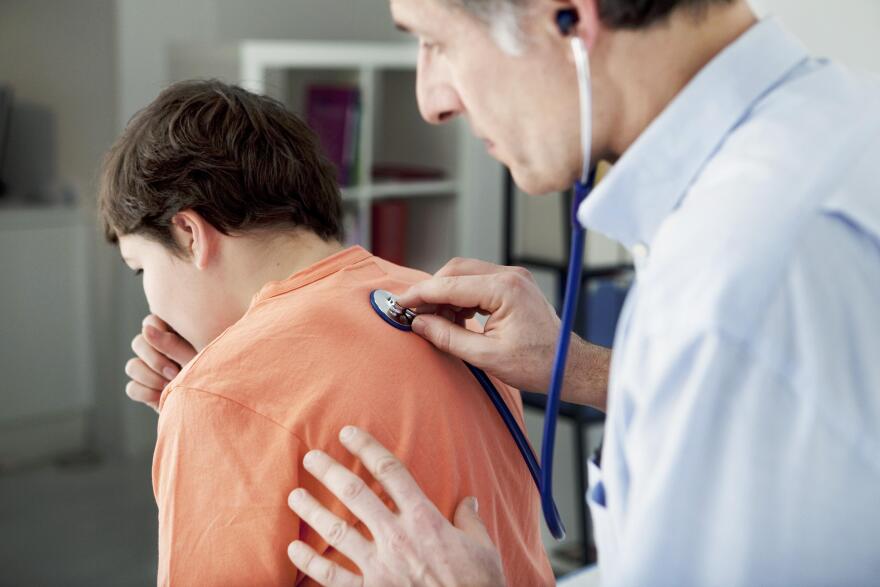Whooping cough (also known as Pertussis) is a highly contagious respiratory illness that affects only humans. While it can affect people of all ages, it can be more dangerous for younger, elderly, or medically predisposed individuals.
What is whooping cough?
Caused by a bacteria named Bordetella pertussis, the bacteria succeed at infecting humans by attacking the Upper Respiratory Tract on specialized Epithelial cells (lining cells) called Ciliated cells.
The cells are called this due to the structural presence of Cilia, hair-like structures that aid in airflow for our respiratory system by removing debris. These structures become a hospitable place for the infectious bacteria, which cling to the structures and then begin to produce multiple toxins that lead to both local and systemic symptoms.
These toxins lead to swelling of the airways–causing difficulty breathing, triggering a cough response, and increasing mucus production.
How is it contracted

The illness is contracted by touching microdroplets that are infected with the bacteria and then touching your mouth and/or nose, or by breathing in the particles. Moreover, exposure to these infectious microdroplets could be through methods like touching a handle someone contagious with did, being sneezed on by someone with the illness, or sharing utensils with someone who is contagious.
All in all, the best way to avoid getting sick by someone you know is contagious is to avoid spending time or sharing spaces with them. People infected can be contagious for several weeks, even up to two weeks after the cough begins.
Along with this, people can be contagious with minor symptoms, even before coughing begins because the bacteria is still in their system which then they can spread through microdroplets.
Other names and vaccine information
Whooping cough has several other names such as the “cough of 100 days” and the “rib-breaking cough.” It is quite uncomfortable, can cause great damage and can be prevented with personal hygiene (hand-washing), avoiding those who are infected and being vaccinated against it. The CDC says there are vaccines safe for people of all ages and that everyone should consider being immunized against the illness.
If someone has been exposed to an infected individual, they could be put on antibiotics to prevent getting sick, but doctors mostly offer supportive care to aid in the comfort of the individual.
If the coughing has already begun, the infected person just has to let it ride out – which can take several weeks and they are contagious throughout the period.



